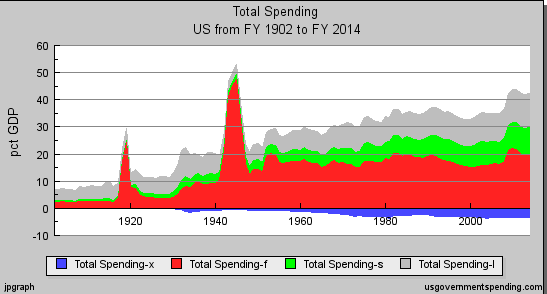Historically, the evolution of government systems was mainly driven by violence, with invasions and revolutions being the principal agents of selection process. The rules of the game were predetermined by our environment - land was a limited resource, for which our ancestors had to compete, if only to ensure the survival of their descendants.
The 20th century introduced a game changer. As agricultural productivity in developed countries rose by orders of magnitude and natural population growth practically came to a halt, possessing a large territory stopped being a necessity. Countries with little arable land, ultra-high population density and no natural resources can now not only feed their population, but also achieve top living standards. These changes may open a fundamentally different route for societal evolution – one that would not be based on violence or compulsion.
A small thought experiment - imagine what would happen if central governments cede most powers to smaller territorial units:
- The initial result will be political divergence - with less interference from central authorities, policies of local communities will inevitably move away from the political center. The divergence will further increase as people gradually relocate to communities whose laws closely reflect their own preferences.
- Eventually, successes and failures of each community will clearly demonstrate the consequences of their policies, and the process of political divergence will be reversed. Local governments that fail to emulate the best examples will simply lose their population, who will vote against them with their feet. Just like natural selection promotes survival of the fittest, competition between different communities will promote policies that maximize human wellbeing.
- In the end, it is likely that a significant difference between communities will persist (after all, even siblings have different tastes). However, peculiar policies of each community will be a voluntary choice of its residents, and people with different ideologies will no longer have to impose their views on each other.
Unfortunately, there are serious obstacles to the successful implementation of this idea:
- It is not clear how central governments can be made to cede any of their powers. Even politicians elected on the platform of curtailing government power would be strongly tempted to renege on their promises.
- Several countries in the past were organized along somewhat similar principles – the city-states of the Ancient Greece, Northern Italy during the Renaissance period and the Dutch Republic during its Golden Age. Each achieved spectacular economic, technological and cultural development, but in all cases either the country itself or its political system eventually fell as a result of external aggression. This threat is still relevant, as many nations have not yet reached the economic or mental stage when they are no longer interested in territorial conquests.
- Most importantly, it is not clear how people from fundamentally different political camps (e.g., socialists and libertarians) can be convinced to work together for a common purpose.
Do you think these problems are solvable?

The fact that Singapore ranks third in GDP per capita suggests that in government economies of scales are probably not that important.
But the fact that there are public healthcare systems considerably more efficient than the US one suggests scale us important. And wealthy microstates don't have a solution that scales...if everywhere is a tax haven, nowhere is a tax haven.